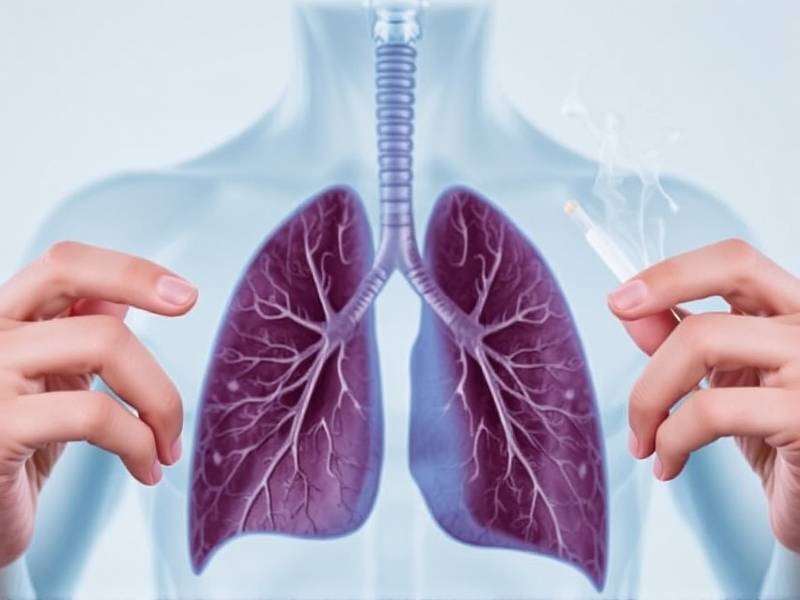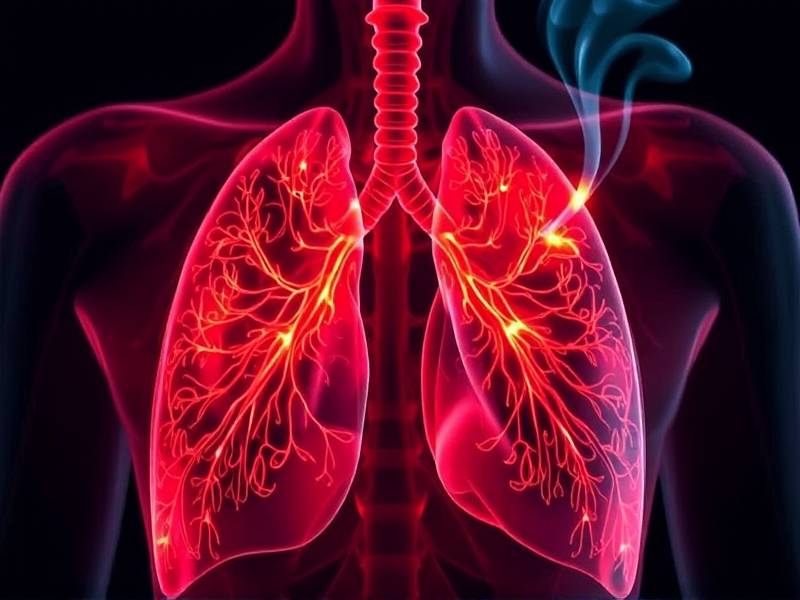Why Do Your Lungs Hurt When You Quit Smoking?
The Unbearable Pain in Your Lungs: Understanding the Quitters' Dilemma
Introduction: When you decide to quit smoking, it's a brave and commendable step towards a healthier life. However, one common challenge many quitters face is the discomfort in their lungs. In this article, we'll explore why your lungs hurt when you quit smoking and provide some insights to help you navigate through this challenging phase.
Why Do Your Lungs Hurt When You Quit Smoking?

-
Withdrawal Symptoms One of the primary reasons for the pain in your lungs when you quit smoking is the withdrawal symptoms. Nicotine is an addictive substance that affects your body's natural functions, including lung function. When you stop smoking, your body goes through a period of adjustment, leading to various symptoms like irritability, anxiety, and coughing.
-
Coughing Up Mucus As your body starts to heal from the effects of smoking, it may begin to cough up mucus that has accumulated in your lungs over time. This mucus can cause discomfort and pain as it moves through your respiratory system.
-
Increased Oxygen Intake When you quit smoking, your lungs are no longer exposed to harmful chemicals and toxins. This allows them to take in more oxygen, which can lead to a temporary sensation of tightness or pain as they expand.
-
Healing Process The healing process of damaged lung tissue can also cause pain or discomfort when you quit smoking. Over time, as your lungs repair themselves, the pain should gradually decrease.
-
Reduced Carbon Monoxide Levels Carbon monoxide is a harmful gas produced by tobacco smoke that binds with hemoglobin in red blood cells, reducing oxygen transport throughout the body. When you stop smoking, carbon monoxide levels drop quickly, leading to increased oxygen delivery to tissues and organs. This sudden change can cause some discomfort as your body adjusts.
Tips for Coping with Lung Pain When Quitting Smoking
-
Stay Hydrated Drinking plenty of water can help thin out mucus and make it easier for it to be expelled from your respiratory system.
-
Practice Deep Breathing Exercises Deep breathing exercises can help improve lung capacity and alleviate discomfort caused by increased oxygen intake.
-
Avoid Inhaling Irritants Minimize exposure to allergens and irritants like dust or smoke from other sources during this transitional period.

-
Seek Support Joining a support group or seeking professional help from a therapist or counselor can provide emotional support and guidance during this challenging time.
Conclusion: Quitting smoking is an essential step towards better health; however, dealing with lung pain can be daunting at first. By understanding the reasons behind this discomfort and following our tips for coping with lung pain when quitting smoking, you'll be better equipped to navigate through this phase successfully and achieve long-term success in your journey towards a smoke-free life.
